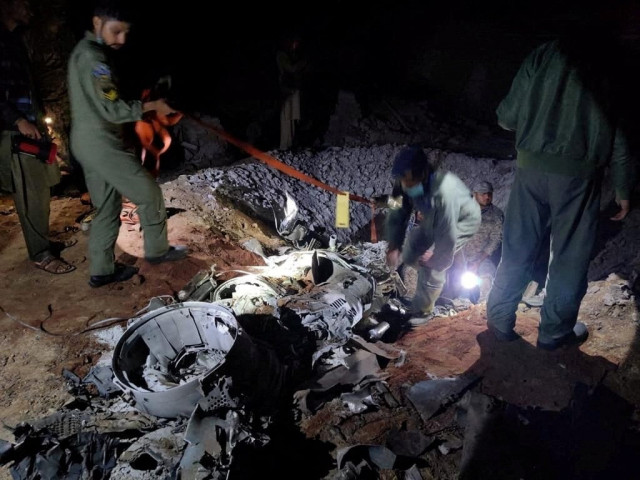Pakistan draws international attention to Indian missile fiasco
FO spokesperson says Pakistan will only be a partner in peace, not in conflict

Pakistan has briefed the permanent members of the United Nations Security Council (UNSC) and other key states on the ‘accidental’ firing of an Indian missile into its territory as it contemplates possible legal actions against New Delhi.
Foreign Office (FO) Spokesperson Asim Iftikhar, at a weekly news briefing, revealed that Foreign Minister Shah Mahmood Qureshi spoke to UN Secretary-General António Guterres and wrote a letter to the president and secretary-general of UNSC on the same matter.
India has already confirmed firing a missile into Pakistan on March 9 -- an act Islamabad said could have triggered a major conflict between the two nuclear-armed neighbours. Although, New Delhi, while admitting its mistake, ordered a high-level inquiry into the lapse, due to the gravity of the situation, Islamabad demanded a joint prove. While India is yet to respond to Pakistan’s demand, the latter has already moved the issue before the international community.
Iftikhar said that Pakistan has drawn the international community’s attention to India’s “persistent aggressive and irresponsible actions, its massive arms build-up, as well as, its offensive military doctrines and force postures, which pose an ever-present threat to peace, security and stability in South Asia”.
The spokesperson told reporters that Islamabad had urged the Security Council to demand from New Delhi a joint investigation, affirmation of desisting from further actions that could jeopardise regional peace and security, and reassurance about the security and safety of its weapons. The spokesperson also rejected “unwarranted and gratuitous” remarks made by Indian Home Minister Amit Shah regarding the partition and location of Kartarpur Sahib in Pakistan. He also expressed serious concern over the Bharatiya Janata Party (BJP) leadership’s “increasing tendency of dragging Pakistan into its domestic affairs”, adding that “distortion of historical facts has become a hallmark of the BJP government along with its ideological fountainhead RSS (Rashtriya Swayamsevak Sangh)”.
He pointed out that Indian Prime Minister Narendra Modi had made similar remarks recently, wherein he questioned well-established facts, which only depicts “denial mentality” and “revisionism”. He highlighted that it was Pakistan that brought the idea of Kartarpur Corridor to fruition while India “kept dragging its feet”, and completed it in record time as a gift to the Sikh community worldwide.
He emphasised that it would serve India better if it sheds its “obsession” over Pakistan and avoid averting international attention from the situation in occupied Kashmir, where minorities, especially Muslims, are being margianalised and stigmatised.
‘Principled decision’:
Iftikhar also commented on the situation in Ukraine, saying that Pakistan has taken a “principled decision” to not be part of any international bloc, rather its position would be driven by its desire to protect its vital interests. “Pakistan will only be a partner in peace, not in conflict,” he added.
He said that Pakistan has consistently emphasised the fundamental principles of the UN charter, including the self-determination of peoples and avoiding use of force. “We believe these principles should be applied consistently and universally."
The spokesperson also expressed deep concern over the continuing military conflict, and highlighted that Pakistan has called for immediate cessation of hostilities, besides the establishment of humanitarian corridors and the continuation of talks between Russia and Ukraine. He also reiterated Pakistan’s desire the mediate the conflict.
Iftikhar mentioned that Pakistan had dispatched humanitarian assistance to Ukraine.
Regarding the upcoming Organisation of Islamic Cooperation (OIC) Council of Foreign Ministers session on March 22-23, he said that Pakistan was committed to fostering unity within the Ummah for the cause of justice for Muslims across the world.
Apart from addressing the core issues on the agenda, particularly Palestine and Kashmir, he said that the conference would also discuss key priorities such as countering Islamophobia and recovery from the Covid-19 pandemic.



















COMMENTS
Comments are moderated and generally will be posted if they are on-topic and not abusive.
For more information, please see our Comments FAQ